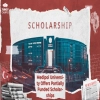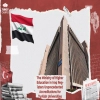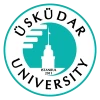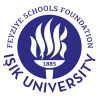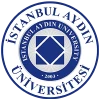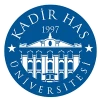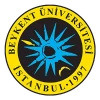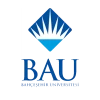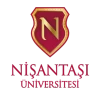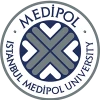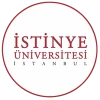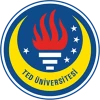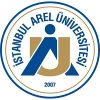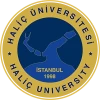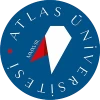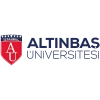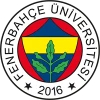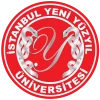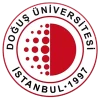Studying philosophy, criticism, and logic in Turkey offers a fascinating intellectual journey, immersing students in the realms of critical thinking, deep analysis, and the exploration of fundamental questions about human existence, knowledge, ethics, and reasoning. With a long-standing tradition of philosophical inquiry and a vibrant academic environment, Turkey provides a fertile ground for those seeking to delve into the depths of philosophical thought and develop skills in critical analysis.
In this detailed article, we will explore the various aspects of studying philosophy, criticism, and logic in Turkey, including program offerings, academic traditions, renowned scholars, interdisciplinary opportunities, and the relevance of philosophical education in today's world.
Overview of Studying in Turkey
Studying in Turkey offers a rich and rewarding educational experience for both domestic and international students. With a long-standing tradition of academic excellence, Turkey boasts numerous reputable universities and institutions that provide a wide range of programs and disciplines. The country's strategic location at the crossroads of Europe and Asia, coupled with its vibrant cultural heritage, makes it a unique destination for higher education.
Turkish universities offer modern facilities, state-of-the-art research centers, and a supportive learning environment. Students in Turkey benefit from a diverse and inclusive academic community, where they have the opportunity to interact with peers from different backgrounds and cultures. Moreover, Turkey offers a relatively affordable cost of living compared to other study abroad destinations, making it an attractive option for students seeking quality education at a reasonable cost.
Philosophy, Criticism and Logic Program Offerings in Turkey
Turkey offers a diverse range of programs in philosophy, criticism, and logic at both undergraduate and postgraduate levels. These programs are offered by esteemed universities across the country and provide a comprehensive curriculum covering the history of philosophy, contemporary philosophical trends, logical reasoning, ethics, aesthetics, and critical analysis. Students can choose from specialized tracks such as ethics, metaphysics, philosophy of language, epistemology, or engage in interdisciplinary studies combining philosophy with fields like literature, psychology, or sociology.
Philosophy, Criticism and Logic Academic Traditions and Renowned Scholars
Turkey has a rich intellectual heritage with a long tradition of philosophical inquiry. From ancient Greek philosophy to Islamic philosophy and the modern philosophical currents, Turkish academics have made significant contributions to the field.
Scholars like Nasraddin Tusi, Molla Fenari, and Mulla Sadra have left indelible marks on the history of philosophy. Today, Turkey is home to distinguished philosophers and critics who actively contribute to philosophical discourse, conduct research, and mentor students.
Best Universities to Study Philosophy, Criticism and Logic in Turkey
When it comes to studying philosophy, criticism, and logic in Turkey, several universities stand out for their esteemed academic programs and faculty expertise. Here are some of the best universities known for their philosophy, criticism, and logic departments:
- Istanbul University
Istanbul University, one of Turkey's oldest and most prestigious institutions, offers a distinguished faculty of philosophy. Its Department of Philosophy provides a comprehensive curriculum covering various branches of philosophy, including ethics, metaphysics, logic, and aesthetics. The department promotes critical thinking, intellectual inquiry, and philosophical analysis through its rigorous academic programs.
- Middle East Technical University (METU)
METU, located in Ankara, is renowned for its strong academic programs in philosophy. The Department of Philosophy at METU offers undergraduate and postgraduate programs focusing on contemporary philosophy, logic, philosophy of science, and epistemology. The department's faculty members are known for their research contributions and provide students with a solid foundation in philosophical thought.
- Bogazici University
Bogazici University, situated in Istanbul, is recognized for its excellence in humanities and social sciences. The Department of Philosophy at Bogazici University offers a comprehensive curriculum that covers a wide range of philosophical disciplines, including ethics, logic, philosophy of language, and philosophy of mind. The department fosters a stimulating academic environment, encouraging students to engage in critical analysis and philosophical inquiry.
- Bilkent University
Bilkent University, located in Ankara, is known for its strong emphasis on academic excellence. The Department of Philosophy at Bilkent University offers a rigorous program that covers both historical and contemporary philosophical traditions. Students gain a solid understanding of core philosophical concepts, logical reasoning, and critical analysis. The department hosts regular seminars and conferences, providing students with opportunities for intellectual engagement.
- Sabanci University
Sabanci University, situated in Istanbul, offers a vibrant intellectual environment for the study of philosophy. The Faculty of Arts and Social Sciences at Sabanci University offers a program in philosophy that emphasizes interdisciplinary approaches and critical thinking. The program covers a wide range of philosophical topics, including ethics, social and political philosophy, and philosophy of science.
- Ege University
Ege University, located in Izmir, is known for its strong philosophy department. The Department of Philosophy at Ege University offers undergraduate and postgraduate programs focusing on various philosophical disciplines, including logic, ethics, philosophy of language, and aesthetics. The department promotes philosophical research and critical thinking skills among its students.
These universities have established themselves as leading institutions for studying philosophy, criticism, and logic in Turkey.
Philosophy, Criticism and Logic Curriculum in Turkey
The curriculum for studying philosophy, criticism, and logic in Turkey encompasses a wide range of subjects and approaches, providing students with a comprehensive understanding of these disciplines. While the specific curriculum may vary among universities, here is a general overview of the topics typically covered in these programs:
- History of Philosophy
Students explore the history of philosophy, examining key philosophical movements, thinkers, and texts from ancient Greek philosophy to contemporary philosophy. This includes studying prominent philosophers such as Plato, Aristotle, Descartes, Kant, Nietzsche, and others.
- Logic and Critical Thinking
The study of logic forms a crucial part of the curriculum, focusing on deductive and inductive reasoning, logical argumentation, and formal logic systems. Students learn to analyze and construct valid arguments, identify fallacies, and develop strong critical thinking skills.
- Epistemology and Metaphysics
Epistemology investigates the nature of knowledge, theories of truth, and the limits of human understanding. Metaphysics explores fundamental questions about reality, existence, mind-body dualism, free will, and determinism.
- Ethics and Moral Philosophy
Students examine ethical theories, moral principles, and ethical dilemmas. They explore normative ethics, applied ethics, and metaethics, engaging in discussions on ethical frameworks, moral reasoning, and the philosophy of morality.
- Aesthetics
Aesthetics focuses on the philosophy of art, beauty, and the nature of aesthetic experience. Students explore theories of aesthetics, artistic expression, and the philosophical analysis of various art forms.
- Philosophy of Language
This field investigates the nature of language, its relationship to thought and reality, and the use of language in communication. Topics may include theories of meaning, reference, semantics, and linguistic analysis.
- Philosophy of Science
Students delve into the philosophy of science, examining the nature of scientific knowledge, scientific methodology, and the philosophy of specific scientific disciplines. This may include discussions on scientific realism, empiricism, scientific progress, and the demarcation between science and pseudoscience.
- Social and Political Philosophy
Students explore philosophical theories related to society, politics, justice, and human rights. Topics may include theories of justice, social contract theory, political ideologies, and the philosophy of law.
In addition to these core subjects, students may have the opportunity to choose elective courses or specialize in specific areas of interest such as philosophy of mind, philosophy of religion, philosophy of technology, feminist philosophy, or continental philosophy.
Many programs also emphasize research, essay writing, and critical analysis skills, enabling students to engage in independent research projects and contribute to philosophical discourse.
Interdisciplinary Opportunities
Studying philosophy, criticism, and logic in Turkey provides ample opportunities for interdisciplinary engagement. Students can explore connections between philosophy and various disciplines such as literature, linguistics, sociology, psychology, and political science.
This interdisciplinary approach enhances the breadth of knowledge and allows students to apply philosophical insights to contemporary issues, fostering a well-rounded understanding of the complexities of human existence, society, and culture.
Critical Thinking and Analytical Skills
Studying philosophy, criticism, and logic equips students with essential skills that are highly sought after in various professional domains. The rigorous analytical training promotes critical thinking, logical reasoning, argumentation, and problem-solving abilities.
These skills enable graduates to excel in diverse careers that value intellectual acumen, including academia, law, public policy, journalism, consulting, and research.
Relevance in Today's World
Philosophical education remains highly relevant in the contemporary world, where complex ethical, social, and existential questions arise. The study of philosophy cultivates a deeper understanding of the human condition, ethical dilemmas, and the nature of knowledge, enabling individuals to navigate the complexities of our modern society.
Philosophical training encourages individuals to think critically, question assumptions, and engage in meaningful dialogue, fostering intellectual openness, empathy, and a well-rounded perspective on pressing societal issues.
Student Exchange Programs in Turkish Universities
The questions revolve around the possibility of studying at different universities in different locations outside or inside Turkey. The university offers several programs for local and international student exchange, the most important of which are: Erasmus program, Mevlana program, and Farabi program.
- Erasmus Program
The Erasmus program is one of the important study programs that allow student exchange between European and other international universities. Turkey joined this program in 2003, and it is one of the easiest ways to study in Europe, where approximately 3 million students have participated since the program's inception.
The program offers financial support, opportunities to learn new teaching methods, learn a new foreign language, and discover new countries, their history, and civilization. To join the program, you must complete at least one academic year, have a GPA higher than 2, pass a language test, provide a personal photo, valid passport, grade report, and letter of recommendation.
- Melvana Program
The Mevlana program, implemented in 2011, allows student exchange between universities in Turkey and within other countries. To apply for the program, you must complete at least one academic year, have a cumulative GPA higher than 2.5, pass a language test, provide a personal photo, valid passport, grade report, and two letters of recommendation that can be obtained from the university.
- Farabi Program
The Farabi program allows students to exchange between Turkish universities without canceling their registration in their original university. To register for the program, you must complete at least one academic year (excluding the preparatory year), have a cumulative GPA higher than 2, and have the right to apply for only one university. This grant funds one semester with the possibility of completing further semesters.
Conditions for Studying Philosophy, Criticism and Logic in Turkey
- Public Universities
Admission to some Turkish government universities depends on success in the Turkish YÖS aptitude test or the SAT aptitude test, in addition to obtaining a high school diploma with a varying grade requirement depending on the university.
A TOEFL test and Turkish language proficiency test (TOMER) are required if the language of instruction is Turkish. If the student doesn't have a TOEFL or TOMER certificate, they will have to take a language proficiency test at the same university they're applying to if accepted. If the student passes, they start their first year of study immediately. If they fail, they have to undergo a preparatory year to learn the language.
- Private Universities
As for the study requirements in Turkish private universities, they don't require any additional conditions from students. It's enough to have a high school diploma with a grade of no less than 50%. When choosing to study in English, a preparatory year is taught, as well as when studying in Turkish.
Advantages of Registering through Turkey Campus
- One of the main advantages that Turkey Campus offers to students when registering at Turkish universities include:
- The ability to sign contracts with private universities in Turkey, which guarantees foreign students' admission and a reduction in tuition fees upon acceptance.
- Turkey Campus provides multiple options for private and public universities, indicating available majors, annual fees, duration of study, and required registration documents.
- Based on each student's motivation, we offer tailored educational consultations for their specific situation.
- We guide students through all the necessary steps for official registration in the university and obtaining a student ID card.
- We also assist in securing suitable university housing and obtaining residence permits for students.
- We maintain continuous communication with students to provide advice and address any inquiries they may have.
Studying philosophy, criticism, and logic in Turkey offers a transformative intellectual experience, cultivating critical thinking, analytical skills, and a deep understanding of fundamental questions about human existence. With a rich philosophical tradition, interdisciplinary opportunities, renowned scholars, and a vibrant academic environment, Turkey provides an ideal setting for students to embark on a journey of philosophical exploration.
The relevance of philosophical education in today's world further underscores the importance of studying these disciplines, as they equip individuals with the tools to navigate complexities, engage in thoughtful discourse, and contribute meaningfully to society.
If you're interested in joining one of the universities in Turkey, we at Turkey Campus are pleased to offer you a helping hand and embark on the journey towards your future.
Our team of experienced professionals will guide you through the entire application process to Turkish universities, starting from choosing the suitable program to submitting your application, securing your acceptance, and ensuring that you benefit from all available grants and discounts offered by the universities through us.

